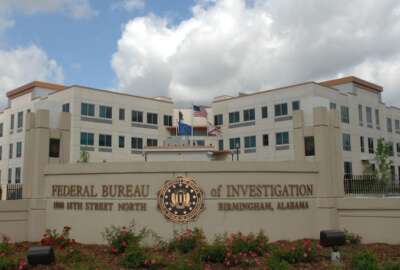
2019 pay raise: Bad news cancels good news
See how your salary compare to feds doing exactly the same jobs in the same agency but in another city.
Sometimes being a federal worker is like being a kid who gets one shoe, or half of a pair, for Christmas. Maybe Santa will deliver the other one next year?
It is better than nothing, but not much.
Consider the good news for white collar federal civil servants who do their thing in Omaha, Nebraska; San Antonio and Corpus Christi, Texas; Birmingham, Alabama; Virginia Beach and Burlington, Vermont. The effective date will be January 2019. The good news is that they are due to be rescued from the RUS (rest-of-U.S.) locality pay zone and put into one of their own.
Where their pay raises, in theory, will be based — sort of — on pay scales for people doing the same jobs in the private sector.
Had they been rescued from RUS long ago, feds in those six cities would be making slightly more than they are today. That means in the future they should get bigger and better pay raises.
That is the good part. The not-so-good part is that the future is not in the immediate future.
The advantage of having your own locality pay area is that feds in cities like the Washington-Baltimore metro area, Philadelphia, Dallas and Chicago also get specially tailored raises in addition to any general increase. The general increase for 2018 was 1.4 percent.
But feds in the Washington-Baltimore metro area — which stretches from parts of Pennsylvania and West Virginia — got a total increase of 2.29 percent while those in the San Francisco-San Jose metro area got 2.21 percent. For the Richmond, Virginia, locality area, the total raise was 1.91 percent. For workers in the geographically diverse RUS the total 2018 raise was 1.67 percent.
The bad news for civilian feds in the six lucky locality pay zones is there probably will not be a raise in 2019. The White House, which gave feds a raise this year, said it is not in the cards for January 2019. Congress could force one, but that is not likely to happen given the short-schedule it is on because this is an election year. The House has scheduled roughly 140 days of time out and that does not include weekends.
So what difference would getting out of the RUS locality zone mean to the workers in Vermont, Virginia, Alabama, Texas and Nebraska? Currently a GS 13 step 5 in any city in the RUS zone makes $98,886. That compares to Albany-Schnectady in New York — close to the new Burlington pay zone — where the rate is $99,854.
Birmingham feds now in the RUS area might be brought closer to the federal pay scales in Atlanta’s metro zone where a GS 13 step 5 is paid 103,849 compared to $98,886 for the same grade and step currently in the RUS zones. Feds in San Antonio might find their salaries going up — following a series of raises — to levels paid in Austin where a GS 15 at mid-grade is paid $100,034.
Once out of RUS, feds in Omaha might move up the pay ladder like their counterparts in Denver who, at GS 13 step 5, are paid $107,543 or about $6,000 more per year.
Once out of RUS and back in the pay raise groove, Virginia Beach feds might aspire to the GS 13 step 5 rate of $101,817 in nearby Richmond, or about $4,000 more.
For comparison purposes, a GS 13 step 5 in San Francisco-San Jose earns $119,380 per annum while the same individual in the Washington-Baltimore area currently gets $109,900.
So how does your salary compare to feds doing exactly the same jobs, in the same agency but in another city? Want to see what the going rate is for Manhattan, Los Angeles or Houston? Would it be worth moving to a lower-cost, or higher wage city?
Check out where you stand on OPM.gov, or find your county on the interactive map below to see by how much your base pay is adjusted to determine your locality pay.
Nearly Useless Factoid
By Amelia Brust
Elephants mourn their dead — even nonrelatives — and conduct grieving rituals or “funerals” as part of the process.
Source: National Geographic
Copyright © 2025 Federal News Network. All rights reserved. This website is not intended for users located within the European Economic Area.
Mike Causey is senior correspondent for Federal News Network and writes his daily Federal Report column on federal employees’ pay, benefits and retirement.
Follow @mcauseyWFED





